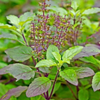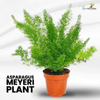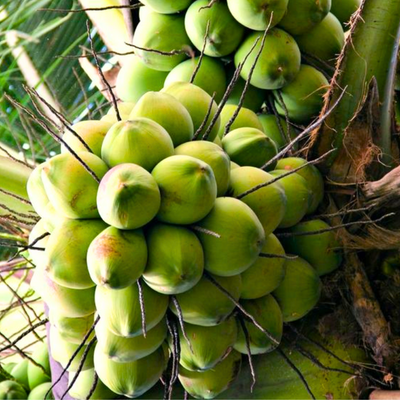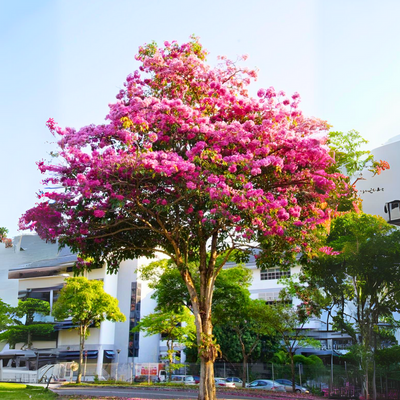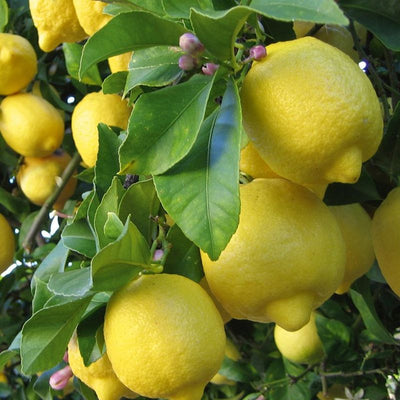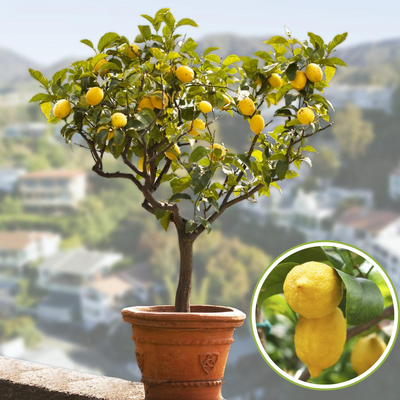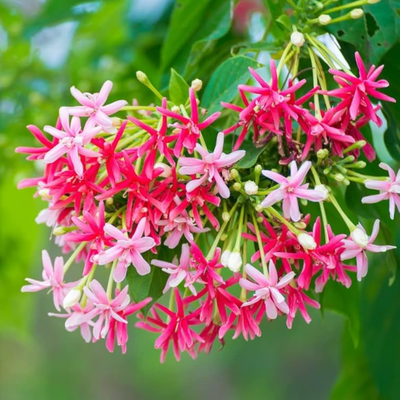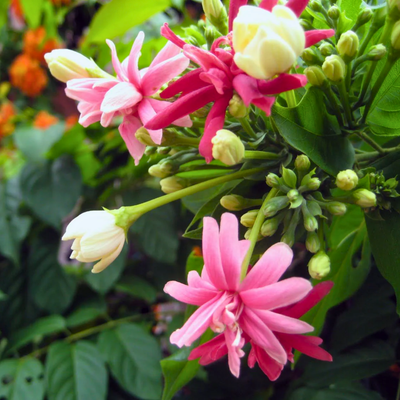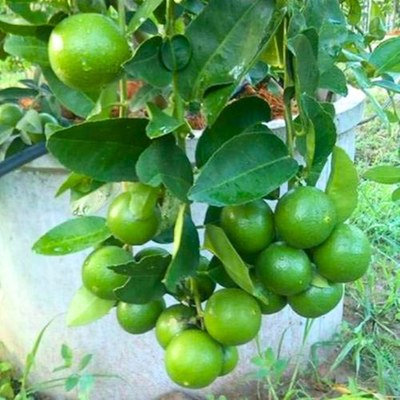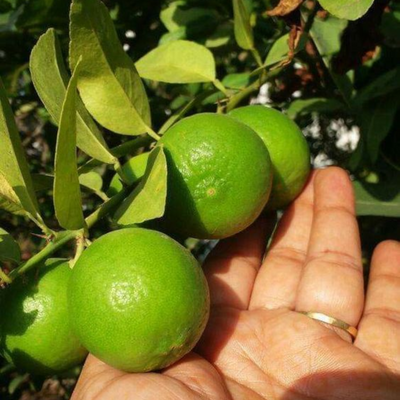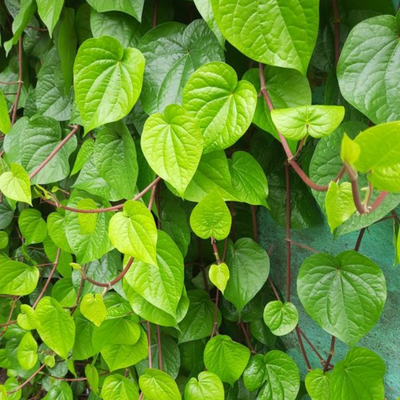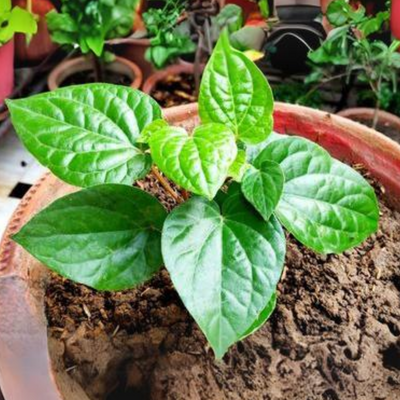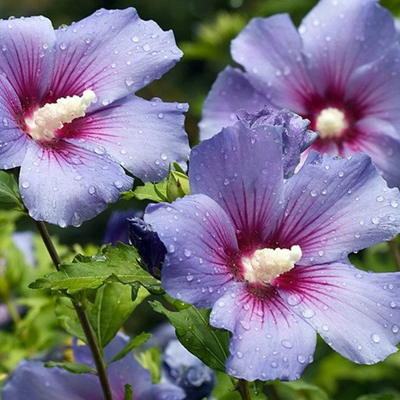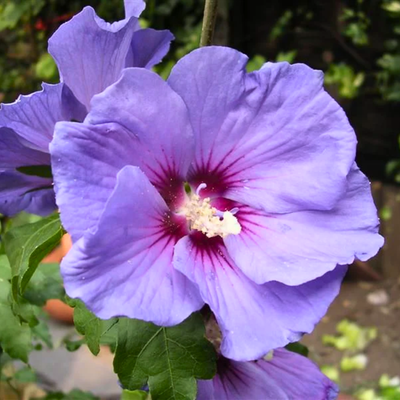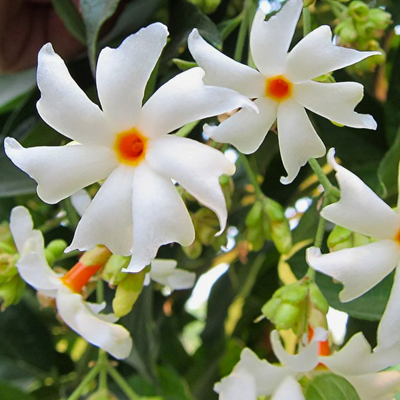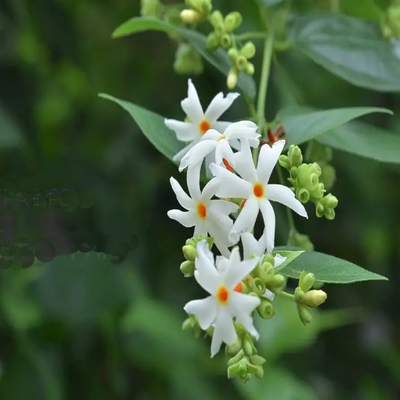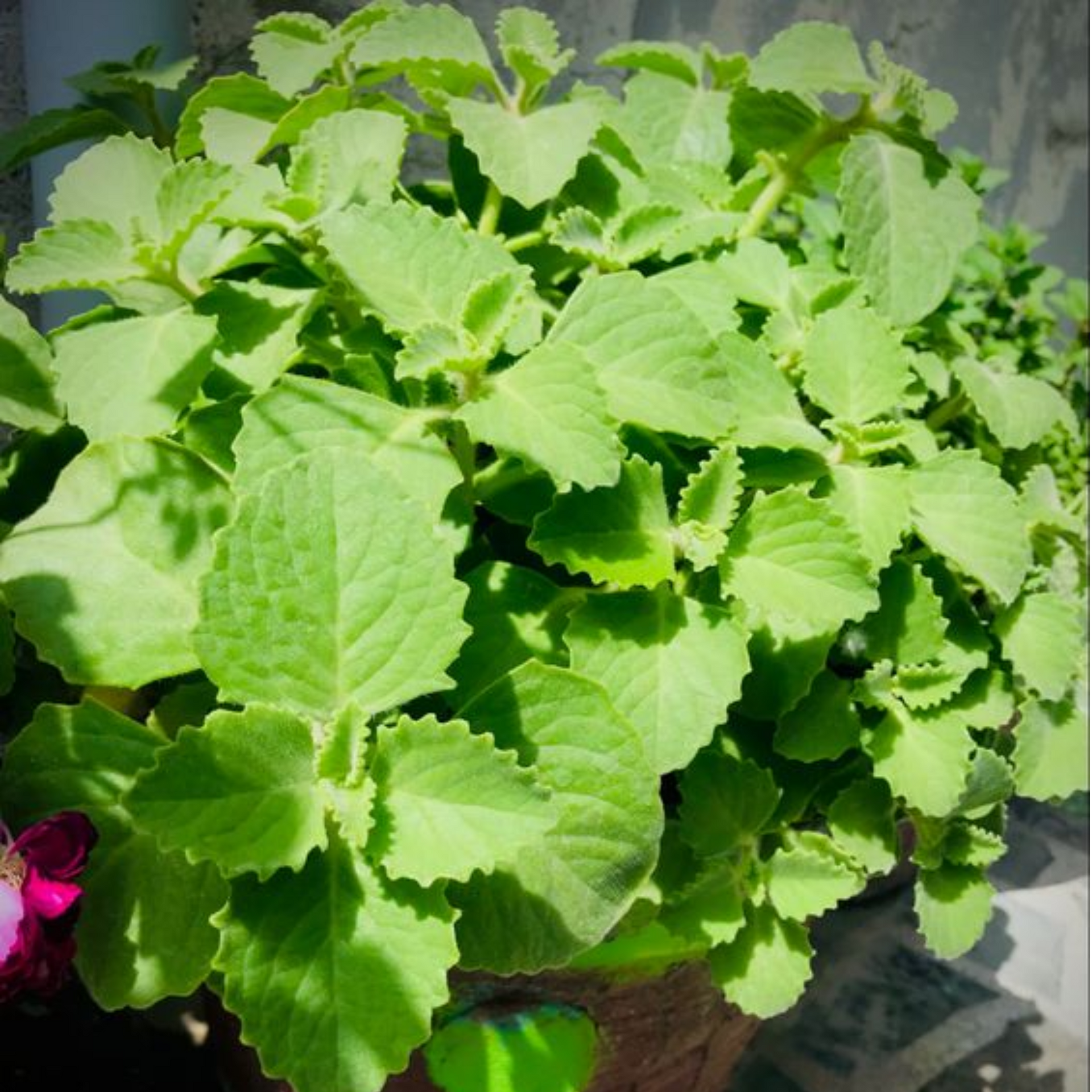
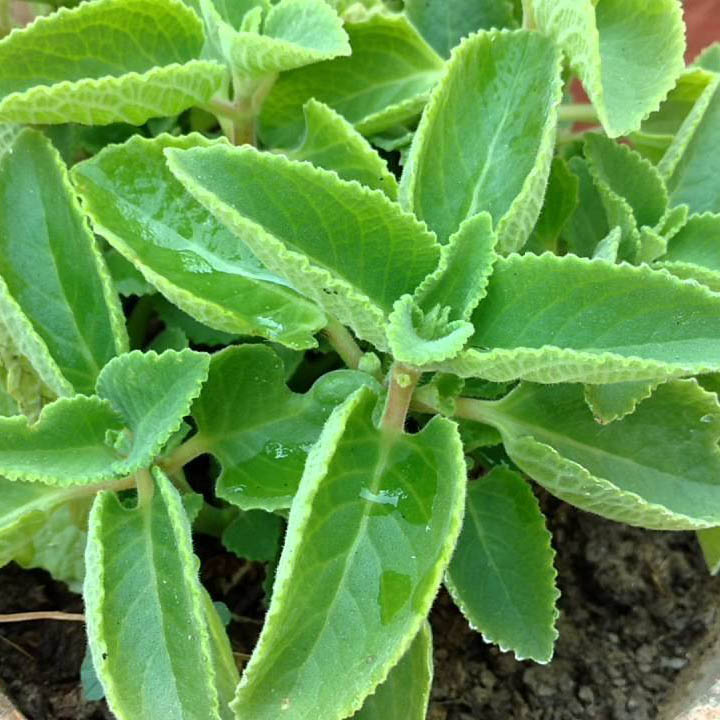
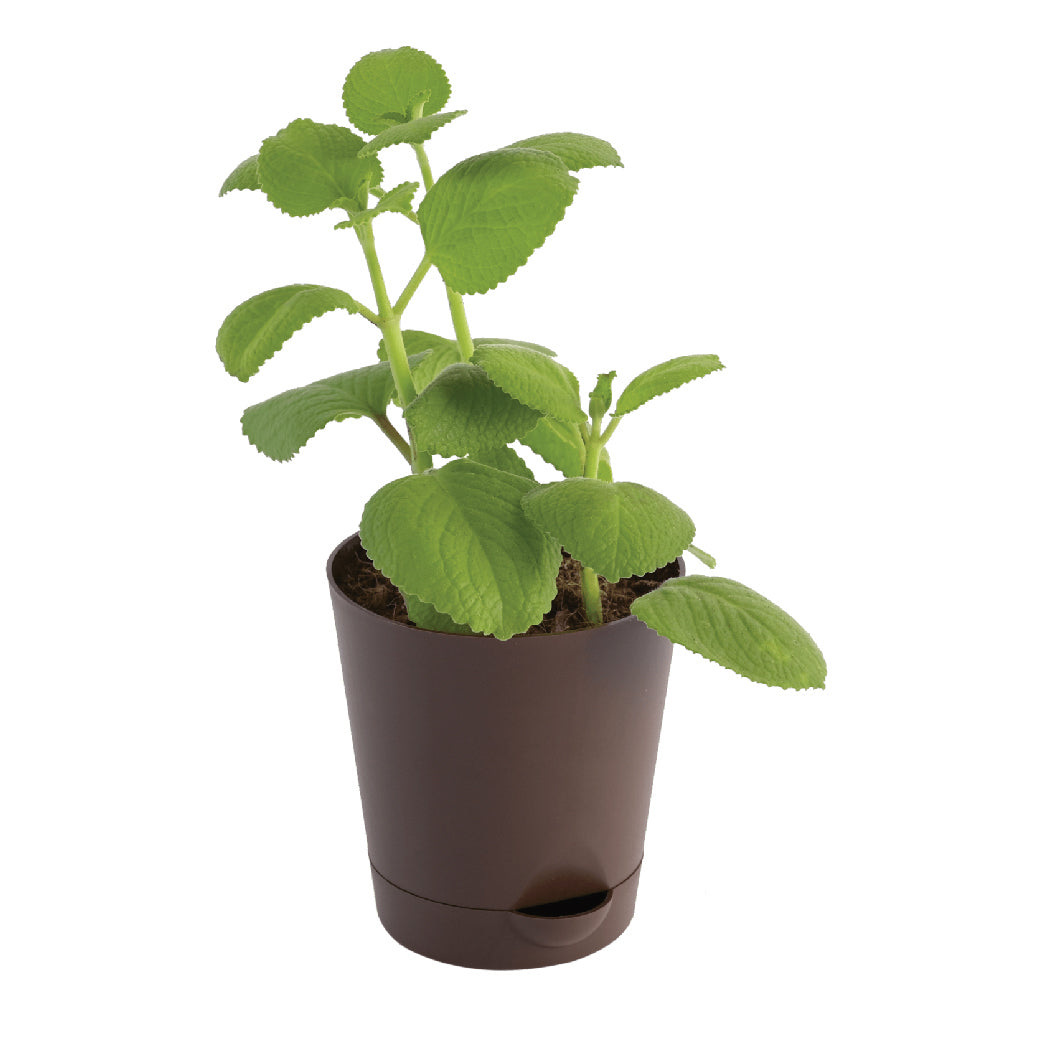
Green Paradise Offers Healthy Ajwain Plant
About Ajwain Plant
the Ajwain plant (also known as Ajowan, Bishop's weed, or Carom) is an aromatic herb commonly found in Indian and Middle Eastern cuisines. Its Trachyspermum ammi is its scientific name, and it is a member of the Apiaceae family. Ajwain has been used for centuries in traditional medicine and cooking due to its medicinal properties and distinctive flavor.
Characteristics:
Ajwain plants are small, erect, and herbaceous, growing up to about 2 feet in height.
The leaves of the Ajwain plant are pinnate (feather-like) and finely divided, with small, delicate, and feathery leaflets.
The plant produces small, white, or pinkish flowers arranged in compound umbels, giving it a visually appealing appearance.
The seeds of the Ajwain plant are the most valued part, known for their strong and pungent aroma.
Culinary Uses:
Ajwain seeds are a popular spice used in Indian cooking, especially in savory dishes and snacks. The seeds have a unique flavor, somewhat resembling thyme, but with a stronger and more pungent taste. They are often used to add depth and fragrance to various dishes, such as curries, pickles, lentil soups, and savory pastries.
Medicinal Uses:
Apart from its culinary applications, Ajwain seeds have been used in traditional medicine for their potential health benefits. They are believed to aid digestion, reduce bloating and gas, and have carminative and antispasmodic properties. Ajwain seeds are sometimes chewed after meals to help with digestion. However, as with any medicinal remedy, it's essential to consult a healthcare professional before using it for therapeutic purposes.
Ayurvedic and Traditional Medicine:
Ajwain is an essential herb in Ayurveda, the traditional Indian system of medicine. It is often used in Ayurvedic remedies to treat various ailments related to digestion, respiratory issues, and general well-being.
How To Grow Ajwain Plant
Growing Ajwain (also known as Ajwan or carom seeds) is relatively easy and can be done in both garden beds and containers. Ajwain is a popular herb in Indian cuisine and has a distinct aroma and taste that adds a unique flavor to dishes.
Here's a step-by-step guide on how to grow Ajwain:
Obtain seeds:
You can find Ajwain seeds in garden centers, online seed stores, or even in the spice section of some grocery stores. Ensure you get good quality seeds for better germination.
Select a location:
Ajwain prefers a sunny spot with well-draining soil. It can tolerate partial shade but will grow best in full sunlight. The soil should be loamy and nutrient-rich.
Sow the seeds:
Ajwain seeds can be sown directly into the soil or started indoors in seed trays and then transplanted. If sowing directly, plant the seeds about 1/4 to 1/2 inch deep in the soil, leaving some space between each seed.
Keep the soil moist:
Water the soil on a regular basis to keep it constantly moist but not waterlogged. Ajwain plants don't like to dry out completely, so make sure the soil doesn't become too dry between watering.
Thinning:
If you've sown multiple seeds in the same spot, thin out the weaker seedlings to give the stronger ones enough space to grow and develop.
Transplanting (if started indoors):
If you started the seeds indoors, transplant the seedlings to the garden once they have grown a few inches tall and have developed a few leaves. Choose a spacing of about 6 to 8 inches between each plant.
Fertilize:
Ajwain plants don't require heavy feeding, but you can add some compost or well-balanced fertilizer to the soil before planting and then a light application during the growing season.
Pruning:
To encourage bushier growth, pinch off the tips of the Ajwain plants once they reach a height of around 6 inches. This will also help promote better branching.
Pest and disease control:
Ajwain plants are generally hardy and not too susceptible to pests and diseases. However, keep an eye out for any signs of infestations or issues and treat them accordingly with natural remedies or appropriate pesticides if needed.
Harvesting:
Ajwain leaves can be harvested once the plant has reached a reasonable size, usually around 3 to 4 months after planting. Use sharp scissors or pruners to snip off the leaves close to the stem. The seeds can be harvested when they turn brown and begin to dry on the plant.
Saving seeds:
If you want to save seeds for the next planting season, let some of the flowers turn into seed pods and dry on the plant. Once the pods are completely dry, collect the seeds and store them in a cool, dry place.
By following these steps, you should be able to successfully grow Ajwain in your garden or containers. Enjoy the fresh and aromatic leaves in your cooking and save some seeds for the next growing season.
Ajwain Plant benefits
Ajwain, also known as carom seeds, is a popular spice in Indian cuisine and is derived from the Ajwain plant (Trachyspermum ammi). Apart from its culinary uses, Ajwain offers various health benefits. Here are some of the benefits associated with Ajwain:
Digestive Aid:
-
Ajwain has traditionally been used to enhance digestion and relieve digestive disorders like indigestion, bloating, and flatulence.
-
It stimulates the secretion of digestive enzymes, which can enhance the digestive process.
Relieves Acidity and Heartburn:
-
Ajwain possesses antacid properties and can help alleviate symptoms of acidity and heartburn.
-
It neutralizes excess stomach acid and provides relief from discomfort.
Respiratory Health:
-
Ajwain is known for its expectorant properties, making it beneficial for respiratory conditions like coughs, colds, and bronchitis.
-
It helps in expelling mucus and provides relief from congestion.
Anti-inflammatory Properties:
-
Ajwain contains compounds with anti-inflammatory properties, which may help in reducing inflammation in the body.
-
It can be beneficial for conditions like arthritis, joint pain, and inflammation of the gut.
Anti-microbial Effects:
-
Ajwain has antimicrobial properties and can help inhibit the growth of harmful bacteria and fungi.
-
It may be used as a natural remedy for bacterial infections, especially in the digestive system.
Improves Metabolism:
-
Ajwain is believed to boost metabolism and aid in weight loss.
-
It may increase the rate at which the body burns calories and help in maintaining a healthy weight.
Relieves Menstrual Discomfort:
-
Ajwain has been traditionally used to alleviate menstrual pain and discomfort.
-
It can help in reducing cramps and abdominal bloating during menstruation.
Oral Health:
-
Chewing ajwain seeds can help freshen your breath and improve oral health.
-
It has antibacterial properties that may help in preventing oral infections and promote overall oral hygiene.
It's important to note that while Ajwain is generally safe for consumption, excessive intake may cause certain side effects or interact with certain medications. It's always advisable to consult a healthcare professional before using any herbal remedies, especially if you have any underlying health conditions or are taking medications.

